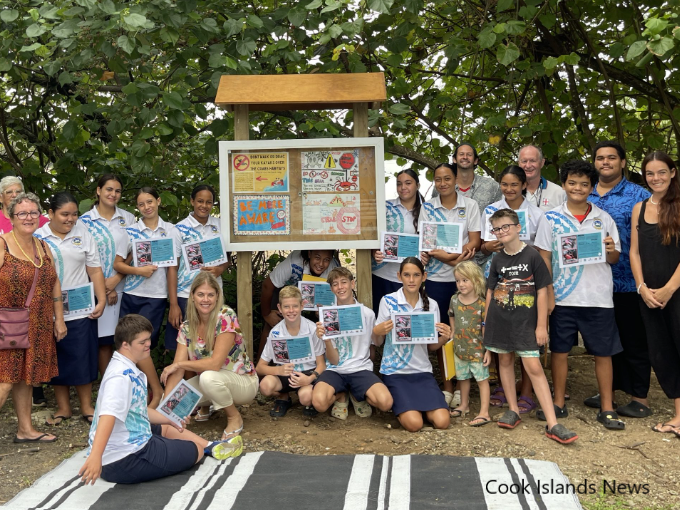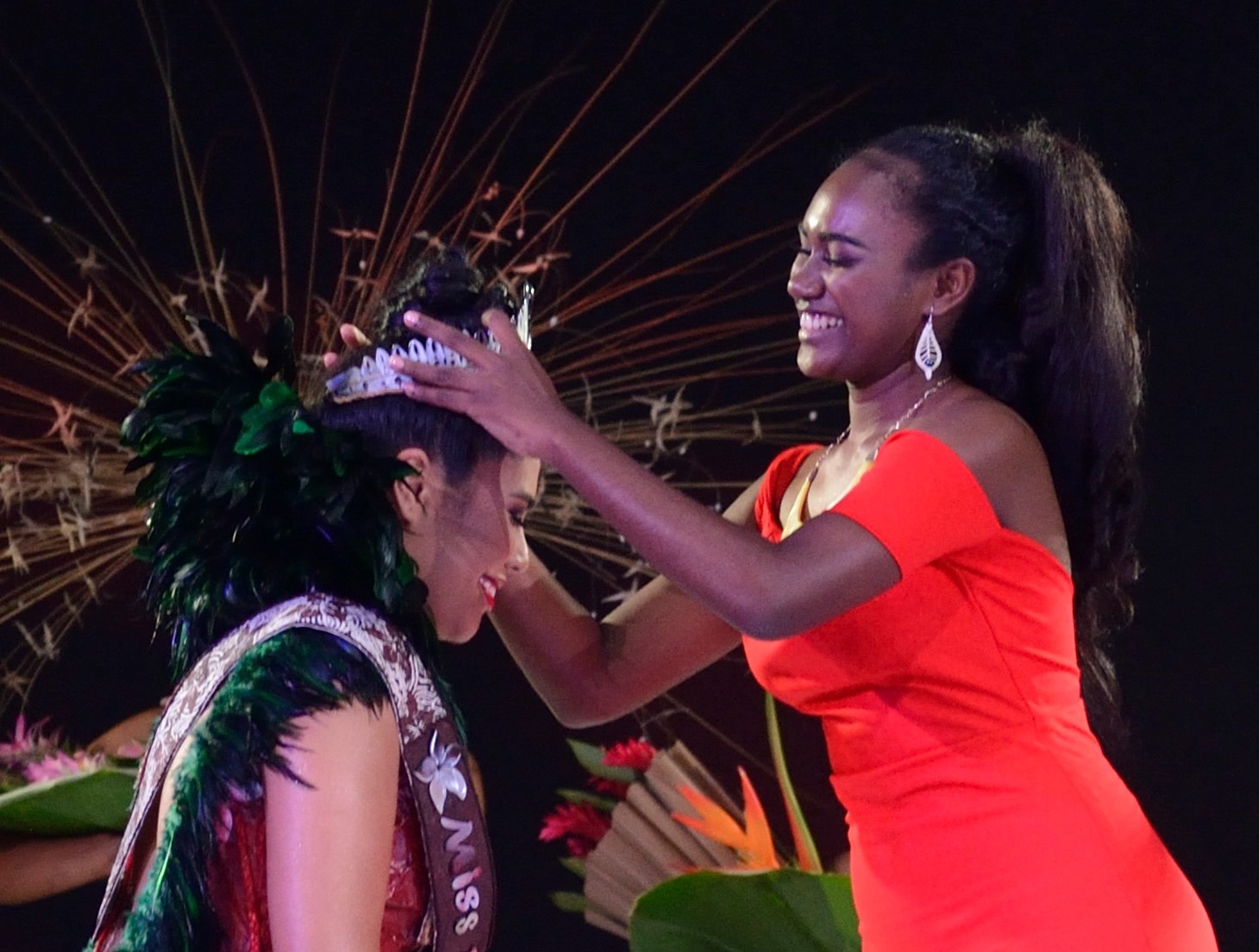Te Ipukarea Society's Contribution To Seabird Conservation: Focusing On Rarely Seen Species

Table of Contents
Te Ipukarea Society's Research and Monitoring Programs for Rare Seabirds
Understanding the threats faced by rare seabirds is the cornerstone of effective conservation. Te Ipukarea Society employs rigorous scientific methods to monitor populations, study breeding behaviors, and identify the primary challenges these birds encounter. Their research program is essential for informing conservation strategies and ensuring the long-term survival of these vulnerable species. They use a variety of advanced techniques, including:
- GPS Tracking: This technology allows researchers to track the movements of individual birds, providing invaluable data on foraging ranges, migration patterns, and habitat use. This is particularly crucial for understanding the impact of human activities, such as fishing and shipping, on seabird populations.
- Nest Monitoring: Careful observation of nesting sites helps determine breeding success rates, identify threats like predation or habitat disturbance, and assess the overall health of the population. This data is directly used to inform conservation strategies.
- Population Surveys: Regular surveys are conducted to estimate population sizes and monitor trends over time. This information is critical for assessing the effectiveness of conservation efforts and identifying species that require immediate attention.
Their work has led to significant discoveries, including:
- Discovery of a previously unknown breeding ground for the Polynesian Storm-Petrel.
- Documentation of the impact of climate change on the nesting success of the Black-capped Petrel.
- Identification of key threats to the survival of the Cook's Petrel, including longline fishing bycatch.
Community Engagement and Education Initiatives: Fostering Seabird Conservation
Te Ipukarea Society recognizes that effective bird conservation requires the active participation of local communities. They invest heavily in community outreach programs and educational initiatives, fostering a sense of stewardship and responsibility towards these vital creatures. Their approach includes:
- Workshops and training sessions: These programs educate local communities about seabird biology, the threats they face, and ways to mitigate negative impacts. This might include best practices for sustainable fishing or ways to protect nesting sites.
- School programs: Engaging children in seabird conservation early on is crucial for building future generations of conservationists. Te Ipukarea Society develops age-appropriate educational materials and organizes school visits and field trips to foster a connection with these remarkable birds.
- Public lectures and awareness campaigns: Raising broader public awareness is key to securing support and promoting responsible behavior towards seabirds. They use various mediums to share information and inspire action.
Specific examples of successful community engagement include:
- Collaboration with local fishermen to reduce bycatch through the use of modified fishing gear.
- Development of educational materials for schools in the region, incorporating local languages and cultural perspectives.
- Organization of community clean-up events to remove plastic and other debris from vital seabird habitats.
Habitat Protection and Restoration Efforts: Securing the Future of Rare Seabirds
Protecting and restoring seabird habitats is critical for the survival of these species. Te Ipukarea Society plays a leading role in these efforts, undertaking various projects to safeguard these essential environments:
- Island restoration: Many seabird breeding sites are located on islands, which can be vulnerable to invasive species and habitat degradation. Te Ipukarea Society works to restore these islands to their natural state, removing invasive plants and animals and promoting native vegetation.
- Predator control: Introduced predators such as rats and cats pose a significant threat to seabird populations. The Society actively works to control and eradicate these invasive species, protecting vulnerable nests and chicks.
- Invasive species management: Invasive species can outcompete native plants and disrupt the delicate balance of island ecosystems. Te Ipukarea Society implements measures to control and eradicate these invasive plants and animals.
These efforts have produced tangible results:
- Eradication of invasive rats on a key breeding island, resulting in a significant increase in seabird chick survival rates.
- Restoration of degraded coastal vegetation, providing increased nesting habitat for several species.
- Successful implementation of predator-proof fencing around nesting colonies.
Collaboration and Partnerships: Strengthening Seabird Conservation Efforts
Te Ipukarea Society recognizes the importance of collaboration in achieving large-scale conservation goals. They actively work with other organizations, government agencies, and international partners to enhance their impact. Their collaborative efforts include:
- Partnerships with local communities and government agencies to implement effective conservation strategies.
- Collaboration with research institutions to enhance the scientific understanding of seabird populations and threats.
- International partnerships to share knowledge and resources and to address transboundary conservation challenges.
Examples of collaborating organizations include [List specific organizations here].
Securing a Future for Rare Seabirds Through Continued Support of Te Ipukarea Society
Te Ipukarea Society’s commitment to seabird conservation, particularly focusing on rarely seen species, is undeniable. Their multifaceted approach, encompassing research, community engagement, habitat restoration, and collaboration, demonstrates a comprehensive strategy for protecting these vulnerable birds. The success of their initiatives underscores the vital role that dedicated organizations play in safeguarding biodiversity.
Supporting Te Ipukarea Society’s work is not merely a contribution; it’s an investment in the future of these magnificent creatures and the preservation of our planet's biodiversity. We urge you to donate, volunteer your time, or simply spread awareness about their invaluable work. By supporting Te Ipukarea Society, you are directly contributing to the long-term survival of rare seabirds and ensuring that these captivating creatures continue to grace our oceans for generations to come. Learn more and support their efforts at [Insert Te Ipukarea Society website link here].

Featured Posts
-
 Nrc Condemns Anti Muslim Plots Demands Swift Action In Bangladesh
May 01, 2025
Nrc Condemns Anti Muslim Plots Demands Swift Action In Bangladesh
May 01, 2025 -
 Celtics Top Cavaliers Derrick Whites Impact And 4 Crucial Moments
May 01, 2025
Celtics Top Cavaliers Derrick Whites Impact And 4 Crucial Moments
May 01, 2025 -
 Ohio Train Derailment The Lingering Threat Of Toxic Chemicals In Buildings
May 01, 2025
Ohio Train Derailment The Lingering Threat Of Toxic Chemicals In Buildings
May 01, 2025 -
 Lady Raiders Vs Cincinnati Home Game Recap And 59 56 Result
May 01, 2025
Lady Raiders Vs Cincinnati Home Game Recap And 59 56 Result
May 01, 2025 -
 Miss Samoa Takes Home The Miss Pacific Islands 2025 Crown
May 01, 2025
Miss Samoa Takes Home The Miss Pacific Islands 2025 Crown
May 01, 2025
